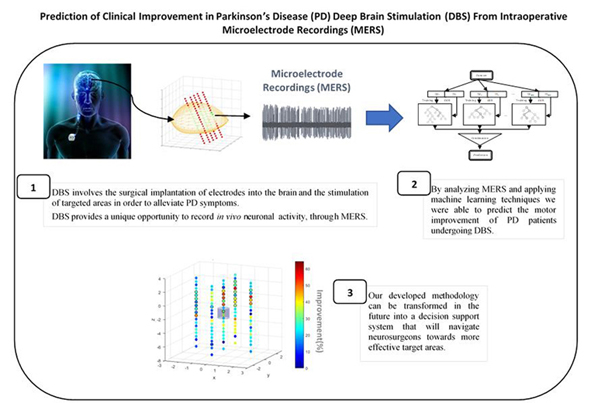Pursuing a Ph.D. is often a mystifying experience to those outside of grad school. So we decided to catch up recent graduate, Dr. Kyriaki Kostoglou, to learn more about it.
On her decision to study at McGill
When Kostoglou began working in Prof. Georgios Mitsis’ research group in Cyprus, she never imagined that it would lead to her completing a Ph.D. across the Atlantic. At the time, she was doing her Master's in mathematical models of biological systems and still trying to figure out her next steps. Then, in 2013, Mitsis was hired to work in the Department of Bioengineering at McGill University, and everything just clicked. This would be the perfect opportunity for her to continue her research in biomedicine at a world-renowned institution. She applied to do a Ph.D. under his supervision soon after.
On being a Ph.D. student
For Kostoglou, a Ph.D. is more than just a “paper on the wall," it’s a way of life -- one that requires complete dedication and passion for the subject: “You might spend all day thinking about how to solve a problem.” The experience, for her, was one that balanced independent research along with good guidance from her supervisor. She also saw it as a chance to master a specific topic.
On her research
A key aspect of Kostoglou’s research is using mathematical models to represent and understand various physiological mechanisms under healthy and pathological states. These models have diverse health applications, including enhancing the effectiveness of Deep Brain Stimulation (DBS) on individuals with Parkinson’s disease (PD). DBS involves the surgical implantation of electrodes into the brain and the stimulation of targeted areas in order to alleviate PD symptoms. By analyzing the recorded brain activity, she uncovers patterns within the data in an attempt to better predict effective target zones and, therefore, increase the success of DBS.
On her supervisor
Kostoglou feels fortunate to have had such a supportive and engaged supervisor: “Prof. Mitsis is a great professor. He’s knowledgeable, helpful, and interested in what [his students] are doing. It’s difficult to find people you can work and collaborate with in such an effective manner.”
The best part of it
A highlight of her degree was building strong relationships with her lab mates, on both an academic and personal level. Spending so much time together in the lab permitted her research group to continually exchange ideas, discuss experiments, and help each other find solutions to problems. It also brought them closer as friends, and allowed for some fun in the midst of the more demanding aspects of their work. “Lab mates become part of your life,” she reflects.
Advice to students wanting to do a Ph.D.
Because a doctorate degree is such a big commitment, Kostoglou stresses that students should really want the challenge and love their research topic. Her final words of advice? “When you’re stuck, just try your best and be optimistic. At the end of the day, nothing is impossible.”
Kostoglou recently defended her thesis, “Identification of nonlinear, time-varying systems with multiple inputs and binary response systems for biomedical applications.” She has since returned to Europe and is looking into postdoctoral fellow opportunities.

